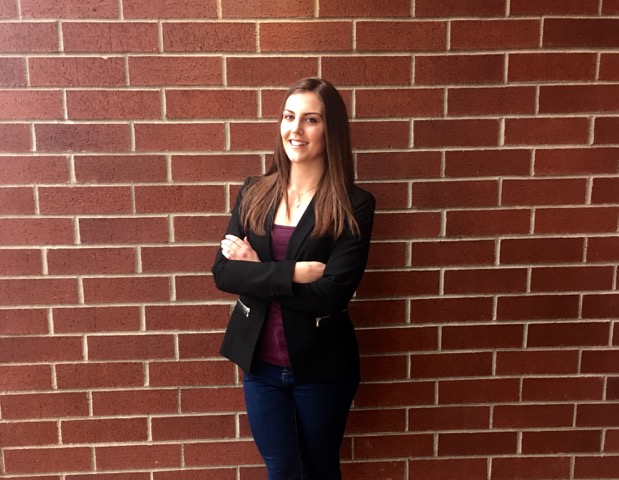Paige Wakefield
What academic program were you in?
I was in the Bachelor of Science in Kinesiology program and graduated in June of 2015
After finishing classes in April, I received two summer studentships (WCHRI and ADI), which allowed me to continue my research project in the Program for Pregnancy and Postpartum Health lab. I worked in the laboratory until August and have since moved to Vancouver to gain some work experience. I have also applied to several Masters programs in Physiotherapy, which would start this fall.
What type of research did you work on as an undergraduate?
I worked mainly in pregnancy research focusing on cardiovascular physiology. The major project I was involved in was looking at the communication between the nervous system and vasculature during pregnancy. I was involved in several other projects in the lab investigating brain blood flow during exercise in pregnant woman as well as factors affecting post-partum weight change.
Who was your supervisor(s) and what has their mentorship meant to you?
I had several supervisors during my research as both a practicum and summer student. Dr. Craig Steinback and Dr. Margie Davenport were great mentors to me and provided me with every opportunity to succeed. I was challenged to think differently and was trusted to work independently. I am very grateful for all the experiences I had in the lab. We also had a great team of volunteers, graduate students and a post-doctoral fellow who supported each other.
What were you able to accomplish with your research?
I published an abstract, which was chosen for a talk and several poster presentations at an International Conference in Boston, MA. This lead to a second author publication in the journal Hypertension (http://www.ncbi.nlm.nih.gov/pubmed/26259593). We found that while sympathetic nervous system activity is higher in pregnant women, there are concurrent changes in the blood vessels of the body that offset the vascular effects of the sympathetic system. As a result, blood pressure is similar between pregnant women in the 3rd trimester of pregnancy and non-pregnant women. We hope to use these findings to help better understand the sympathetic and vascular mechanisms contributing to disordered pregnancies (e.g. gestational hypertension, preeclampsia).
What has been your most memorable moment as a student of the program?
It's hard to choose just one moment! I can give you my top three experiences. I went on an exchange for a semester to the University of Otago in Dunedin, New Zealand. The conference in Boston was a fantastic opportunity that opened my eyes to the world of research. Lastly, Rookie Camp, anyone who has gone to it will understand. The Faculty of Kinesiology, Sport, and Recreation is one big happy family, which makes the student experience much more enjoyable.
Do you have any advice for undergraduates who will be taking the same program and have an interest in research?
Look into topics that interest you and keep your eyes open for volunteer opportunities. I started out as a volunteer that then continued onto my practicum and worked as a summer student running a study. Professors (especially in this faculty) are approachable and are excited about students who are interested in research because they bring new perspectives, energy, and ideas. It is also encouraging to know that your faculty (and university) will support you 100% in your research endeavors. There are great funding opportunities for undergraduates interested in attending academic conferences.
